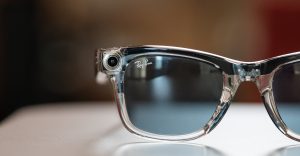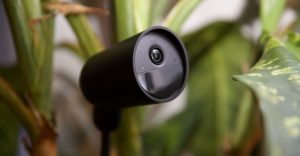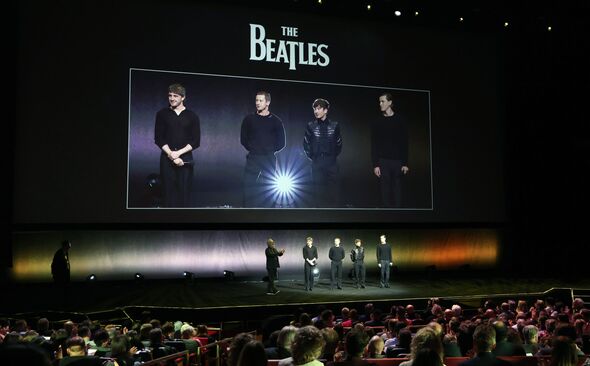Americans still don’t trust self-driving cars
Self-driving cars are having a really rough time gaining our trust.
This is not a total shock considering autonomous vehicles remain theoretical and elusive for most people. The limited number of self-driving cars on the road today are mostly test vehicles that aren’t available to the riding public. Combine that with Americans’ very, shall we say, complicated feelings toward concepts like “freedom” and “control,” and you can see where this is going. Digging on technology in the streets, control freaks in the sheets.
The latest poll to affirm this deep distrust comes from Partners for Automated Vehicle Education (PAVE), a coalition of industry players and nonprofits aimed at improving the public’s understanding of autonomous vehicles. A quick glance at the results reveals that they’ll have their work cut out for them.
- Nearly 3 in 4 Americans say autonomous vehicle technology “is not ready for primetime.”
- About 48 percent said they would never get in a taxi or ride-sharing vehicle that was self-driving.
- Another 20 percent think autonomous vehicles will never be safe.
- Only 34 percent think the advantages of AVs will outweigh the disadvantages.
- Only 18 percent are eager to get on a waitlist for the first AV.
These were some of the findings to emerge from PAVE’s survey of 1,200 Americans, who were contacted by polling firm SurveyUSA between late February and early March 2020. But it could easily have been the results of any poll about self-driving cars taken over the last five years. A variety of auto-related groups like AAA, Kelley Blue Book, and Advocates for Highway and Auto Safety have found similar skepticism in their polls.
Taken together, these results paint a pretty grim picture for the future of autonomous vehicles. After all, much of the technology’s success will depend on public perception and willingness.
Companies working on self-driving taxis, like Waymo, Cruise, and Argo, are already confronting these issues through their own pilot projects and limited commercial deployments. Of course, they have their own data and thus their own ideas on how to overcome this skepticism.
And the numbers aren’t all bad, either. Around half of the people polled by PAVE and SurveyUSA said they owned vehicles with advanced driver assistance system (ADAS) features like automatic emergency braking, lane-keep assist, and blind spot detection. Familiarity and approval of these features can lead to a more positive attitude about self-driving cars, the poll finds. It makes sense, but it’s still a far leap between a car with enhanced cruise control and one that can drive itself without human intervention.
Most people responded favorably to a vehicle that supports the task of driving “but with the driver always in full control.” This is antithetical to every company that claims to be pursuing fully driverless cars. They argue that most vehicle crashes are the result of human error, and that in order to improve road safety, humans need to be removed from the equation.
That’s why you have companies like Cruise introducing vehicles without traditional controls like steering wheels and pedals. And companies like Nuro are lobbying the government for exemptions from federal regulations requiring certain features like rearview mirrors and backup cameras.
PAVE says this skepticism and distrust is rooted in ignorance and lack of experience rather than knowledge of a specific downside or problem. For example, a majority of the respondents said they weren’t familiar with any of the fatalities associated with automated technologies, such as the deadly Uber crash in Tempe, Arizona, or any of the drivers who were killed while using Tesla’s Autopilot system. That should be a red flag to operators: people don’t need to hear about the really big failures to harbor real hostility toward the technology.
The more self-driving cars that hit the road, the more people are likely to trust them, PAVE concludes. But that will take some time, given that many of the early predictions about the readiness of the technology have since proven to be overly optimistic. A lot of people thought the roads would be overrun with robot vehicles by 2020, but here we are. It’s 2020, and the number of AVs currently testing today are a fraction of a fraction of a percent.
“There was a misperception that autonomous tech would one day be solved in a binary fashion and become available everywhere,” Karl Iagnemma, CEO of Hyundai and Aptiv’s joint venture on autonomous vehicles, told me recently. “There’s been steady improvement over time, but it’s clear there would not be binary step function where one day we don’t have AVs and the next they’re everywhere.”
Iagnemma said that AV operators are only just beginning to grasp how the public perceives self-driving cars. This is useful information, but it will take time and more vehicles and more people before perceptions start to change. For example, Aptiv’s robotaxi pilot with Lyft in Las Vegas, which has conducted over 100,000 rides, includes two safety operators in the front seat. People see those two operators, but they also see the car do things they haven’t seen before.
“Despite the fact that there are vehicle operators in the car, customers see the steering wheel turn by itself,” Iagnemma said. “It’s a big moment for most people. A formative experience.”
You may be interested

Next James Bond charges forward with latest on ‘fresh, exhilarating new 007 chapter’
admin - Apr 03, 2025[ad_1] The next James Bond is charging forward under new leadership working on a "fresh, exhilarating new chapter" of 007.…

Christopher Walken leaves fans in stitches as he shares who his favourite actor is
admin - Apr 03, 2025[ad_1] Severance star Christopher Walken has left fans in stitches after sharing who his favourite actor is, with many saying…

Beatles fans think female actress should have been cast as one of Fab Four in biopics
admin - Apr 03, 2025[ad_1] Members of the public are calling for a recasting to the upcoming Beatles biopics, with one actress in particular…
Leave a Comment
You must be logged in to post a comment.





















